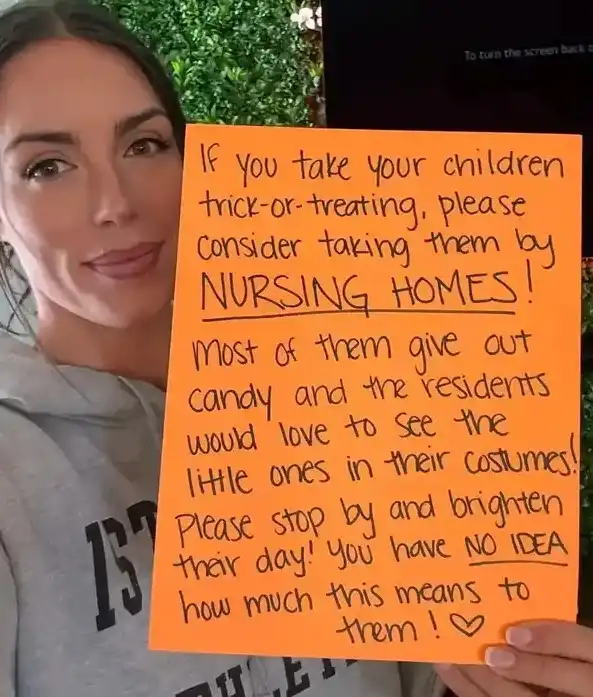Evan Edinger moved to London over 13 years ago to study abroad but never planned on staying overseas permanently. His goal was to get his degree, return to the United States, start his career, and make a life for himself. He thought of his time in London as a "temporary adventure."
But when he finished his degree, he found himself in an unexpected situation: He didn't want to go back. "The longer I stayed in London," Edinger shares on his YouTube channel, "the more I began to notice all of the assumptions that I'd grown up believing in America, the things I was brought up to believe were undeniably true and just the way the world worked—it turns out they weren't true at all."
One of the benefits of living in another country is seeing your country of origin through different eyes. That perspective can cause you to appreciate some things and question other things. Edinger shares nine realizations he's had about the U.S. since he left, starting with one of the most quintessentially American realities he found himself questioning.
- YouTube www.youtube.com
1. Guns
Edinger grew up in New Jersey and describes it as "quite a blue state," but he was still immersed in the gun culture that views gun ownership as a fundamental part of being an American.
"I was raised in a very pro-gun household," Edinger says. "In my family home in America, we had a 12-gauge shotgun, a 10-gauge, a black powder rifle, and a .410 shotgun for the children. My dad would take us out some days to shoot empty cans of beer or play pigeons or sometimes go hunting for pheasants or deer."
He says the notion of not owning a gun was unthinkable in his upbringing. "The idea that other countries do not allow guns is viewed more like these other countries are missing a fundamental right," he says.
His ideas about guns have changed dramatically since moving to London and living in a society without ubiquitous access to guns. "Visiting Philadelphia when I was younger was always scary to me because I never knew who had a gun, who wanted to rob me," Edinger shares. "Visiting New Orleans a couple years ago, I was told by my hotel staff that a few days prior, a tourist was shot and died in the local Popeye's Chicken because he caught a stray bullet of two people having an argument in the restaurant. So, that's just something that people just have to deal with. This constant fear of I could just die being caught in a crossfire and there's nothing I can really do about it because freedom. I've pretty much never felt that level of fear in London at all. And that alone was enough to sway my opinion on guns."
 The U.S. has a unique gun culture.Photo credit: Canva
The U.S. has a unique gun culture.Photo credit: Canva
2. Government
"One thing that's really drilled into you pretty much every year of American school is that American democracy is the end-all be-all of government and that it is the beacon of freedom other countries look to emulate. Then, once you become an adult and you see how dysfunctional the U.S. government is, you search for anything to feel better about it and usually settle on 'Well, at least it's not a third world dictatorship.'"
But those aren't the only two options. Edinger explains how the parliamentary system in the U.K. is far from perfect, but it tends to be more effective at actually getting things done because lawmakers aren't constantly stymied by the inherently destructive two-party gridlock we have in the U.S.
"It's messy, yes, but after 13 years away, I've come to the belief that no system of government is perfect," he says. "But most systems in Western Europe are far more effective than what I grew up believing was the 'best in the world.'"
3. Walkability and Public Transport
In the U.S., having a car is practically a symbol of freedom, but Edinger says he's never felt the need to have a car in his 13 years living in London. He says it's been incredibly freeing to be able to walk and take public transit everywhere, and not just in the city. He's been able to travel all over Europe, in larger cities and small towns, and the focus on walkable neighborhoods and public transportation is everywhere.
 It's much easier to get around without a car in Europe. Photo credit: Canva
It's much easier to get around without a car in Europe. Photo credit: Canva
"After having spent some time living in walkable neighborhoods, I would never ever choose to live in a car dependent place ever again," Edinger says. "It is truly one of the most life-changing parts of living over here. And because I'm always walking everywhere, because I'm always cycling everywhere, it's so much easier to be healthy and physically fit without even trying."
4. Food Quality and Price
Europe has different regulations than the U.S., Edinger explains, with an approach that leads to a lot less additives and chemicals being added to foods.
"Europe's food agency focuses on possibilities and the U.S.'s focuses on probabilities. Is it possible an unnecessary additive could be harmful? Europe prohibits it just to be safe. The US agency, the FDA, they only step in if the probability of it being harmful is high. So, that risk is passed on to the average American consumer."
Edinger also points out that the ability to walk down to the store to get fresh ingredients regularly makes it a lot easier to eat well. "It's one of those things where once you experience both, there is no contest. No contest. So, it's much easier to be healthy in Europe than in America."
5. Healthcare in the U.S. vs. Europe
"If my health does have issues, I am glad it's not something that would ever bankrupt me or cause me to ever think about how much it would have to cost me just to be sick," says Edinger.
Americans often hear horror stories about socialized medicine, but Edinger's experience with going to the doctor and even going to the hospital have been positive, and barely cost him anything.
 The U.S. is an outlier in the world when it comes to healthcare costs. Photo credit: Canva
The U.S. is an outlier in the world when it comes to healthcare costs. Photo credit: Canva
"There are only two types of people that are against the freeing social safety net that is universal healthcare," says Edinger. "People that have never experienced socialized healthcare and people that profit from the broken system. That's it." Most Americans want it, but "most Americans" is not where the money is.
6. Consumer Protections in the U.S. vs Europe
Edinger shares that he bought a MacBook Pro in 2019 that didn't work right, and he hadn't purchased AppleCare because he knew he didn't have to.
"If you buy a tech product in Europe, you have a reasonable expectation that it should last you at least two years free of defects," says Edinger. "And if it's not up to your expectations or breaks down before then, you can demand a return or replacement. This law protects consumers from shady business practices."
He ended up getting his full money back on the computer due to those consumer protections.
"It's laws like this where you really begin to notice a pattern that life in Europe is one that gives more rights to the everyday person over giant corporations and shared benefit over private," says Edinger.
7. Worker Rights
"A quick summary would be 28 days minimum paid holiday, one year paid maternity leave, two weeks paid paternity leave, sick leave, even the right against unlawful termination," said Edinger. "When working part-time at Urban Outfitters in London, even though I worked less than 20 hours a week, I still got two days paid holiday per month. That's insane, right? No, that's just life over here. Meanwhile, I worked five years at a Pizza Hut in New Jersey for over 30 hours per week. Never got a single day of paid vacation."
Indeed, there's more than a handful of European countries that guarantee at least a month of paid days off, with some countries actually requiring a certain number of days or weeks off.
 Europeans get far more generous paid leave than Americans do.Photo credit: Canva
Europeans get far more generous paid leave than Americans do.Photo credit: Canva
Edinger points out the irony that he was always taught that the U.S. was for the individual, for individual freedoms. But in his experience, in Europe individuals have more rights than those with money or power, while it's the opposite in the U.S.
8. Money (Live to work or work to live?)
Edinger says that most things are more affordable in Europe, from groceries to data plans, but Americans do earn higher salaries.
"So if you earn a lot of money and money is your sole defining metric of success, then you can feel a lot more successful in the U.S.," he says. "But because the culture in Europe is work to live and not live to work, you might find that the stress and cost tradeoffs and quality of life erode the value of that higher salary quite quickly."
9. On Romanticizing Europe
People often wonder if Americans romanticize Europe too much, and Edinger says the same question used to be asked of Europeans romanticizing America. But now that we have YouTube and social media and a better ability to see the realities of both places, he says what Americans "romanticize" about Europe is really just the things we want and don't have.
 Work-life balance is something a lot of Americans struggle with.Photo credit: Canva
Work-life balance is something a lot of Americans struggle with.Photo credit: Canva
"I think most Americans who are eyeing up Europe are doing so because of the things that America is lacking. Nearly two in three Americans want universal healthcare. Well, America doesn't offer that. Again, two in three Americans want European style vacation policies. America doesn't offer that. And 53% of Americans would prefer to live in a walkable neighborhood, but sorry, America doesn't offer that. The list goes on. If America were an actual democracy, I don't think many of these people would be having romanticized views of Europe at all because they wouldn't need to. They could have everything they wanted in the country they were born and raised."
Of course, every country has its problems and there are certainly downsides to moving abroad. Edinger acknowledges that but says it really boils down to what you value in life. Americans are taught to romanticize the U.S., and leaving it helps you see the reality, what's good about your country and where it has room for improvement.
"I think the main thing though out of everything that I miss about the U.S. that I can't really get here is not rights, not freedoms, not anything that's big on quality of life improvements," says Edinger. "It's just Mexican food and good ice cream."
You can follow Evan Edinger on YouTube for more on his experiences as an American living abroad.






 The U.S. has a unique gun culture.
The U.S. has a unique gun culture. It's much easier to get around without a car in Europe.
It's much easier to get around without a car in Europe.  The U.S. is an outlier in the world when it comes to healthcare costs.
The U.S. is an outlier in the world when it comes to healthcare costs.  Europeans get far more generous paid leave than Americans do.
Europeans get far more generous paid leave than Americans do. Work-life balance is something a lot of Americans struggle with.
Work-life balance is something a lot of Americans struggle with.
 Russell Crowe in The Gladiator
Russell Crowe in The Gladiator  Tom Hanks at the 1989 Governor's Ball.Photo Credit: Alan Light, Wiki Commons
Tom Hanks at the 1989 Governor's Ball.Photo Credit: Alan Light, Wiki Commons Nicole Kidman in 2012
Nicole Kidman in 2012  Paul Newman in 1958.
Paul Newman in 1958.  Henry Winkler as The Fonz in Happy Days 1976.J
Henry Winkler as The Fonz in Happy Days 1976.J 
 Can we please get a "meet the dog" rule on airplanes?
Can we please get a "meet the dog" rule on airplanes? No matter your age, headphones to listen to things on a flight are a must.
No matter your age, headphones to listen to things on a flight are a must. One overhead bag per passenger until everyone's got their luggage settled.
One overhead bag per passenger until everyone's got their luggage settled.  Even if you know it by heart, please don't talk during the safety demonstration.
Even if you know it by heart, please don't talk during the safety demonstration.
 Security guard on duty with earpiece and cap.
Security guard on duty with earpiece and cap. Confused by the phone, she searches for answers.
Confused by the phone, she searches for answers. Kids exploring renewable energy with a solar panel and wind turbine model.
Kids exploring renewable energy with a solar panel and wind turbine model. Futuristic flying car soaring in a clear blue sky.
Futuristic flying car soaring in a clear blue sky. Scenic road trip past wind turbines in driverless car
Scenic road trip past wind turbines in driverless car Merging minds and machines: the future of brain-computer interfaces.
Merging minds and machines: the future of brain-computer interfaces. Double take: Two beanie-wearing men point at each other.
Double take: Two beanie-wearing men point at each other.
 A woman holds up a suggestion for kids on Halloween.Photo Credit: @FinnFarrow, Reddit,
A woman holds up a suggestion for kids on Halloween.Photo Credit: @FinnFarrow, Reddit,  Trick Or Treater gets a lot of candy
Trick Or Treater gets a lot of candy